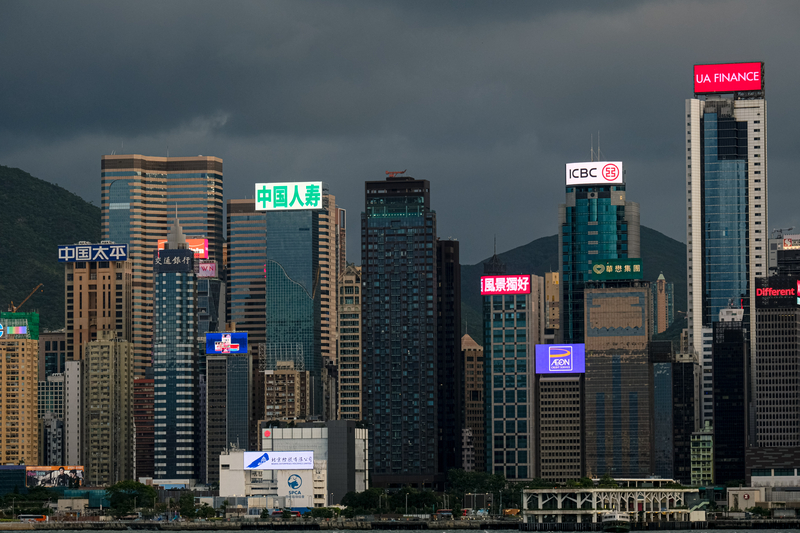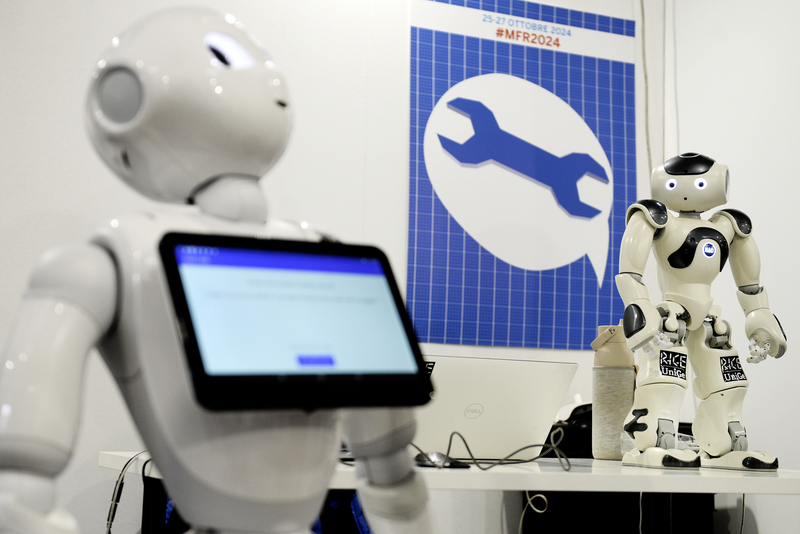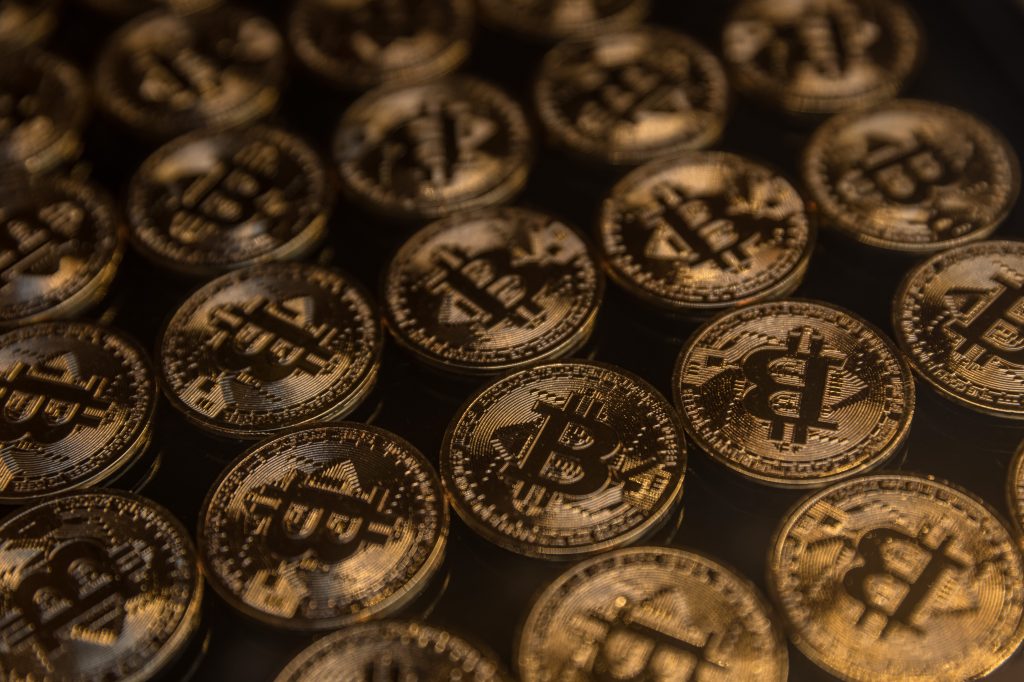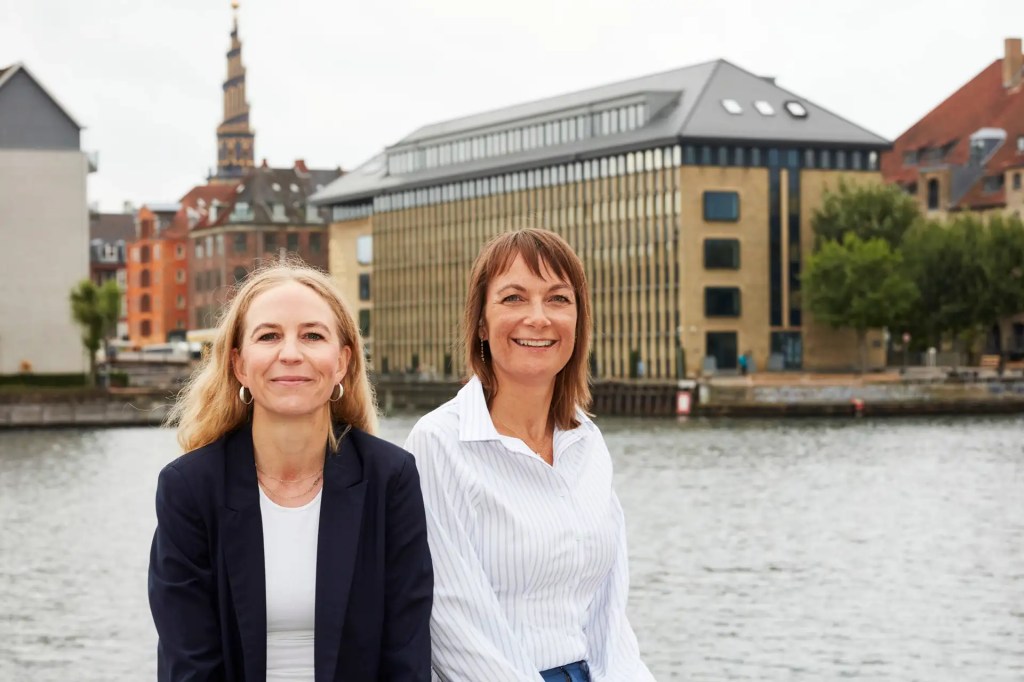This is a transcript of the podcast episode Andrew Hood on the chip wars featuring a discussion between GRIP senior reporter Carmen Cracknell and lawyer Andrew Hood.
[INTRO]
Carmen Cracknell: Hello and welcome back to the GRIP podcast.
Chips, also known as semiconductors, are a crucial component of the modern trade and security landscape. They’re in everything from washing machines to smartphones to high-grade weapons. The compliance and sanctions landscape around chips has become increasingly complicated in recent years due to global geopolitical uncertainties.
Andrew Hood is a partner at Fieldfisher law firm in London specialising in trade, regulatory, public affairs and public international law. He joined us on the GRIP podcast to discuss chips and what firms can do to keep up with the ever-changing regulatory environment.
Thank you for joining us, Andrew, on the Grip podcast. We’d like to hear firstly a bit about you and your background and how the chip war relates to your work.
Andrew Hood: Well, thanks very much for having me.
So I suppose I always consider myself originally as a sort of government lawyer. I spent my time, my formative years in the Foreign Office and final years at number 10 in Downing Street with many prime ministers ago now. But I’ve really dealt with a lot of national security issues in those roles and my time in government. And I left about eight years ago. And now I’m sort of at the sharp end of dealing with a lot of different companies and how national security interacts with their general commercial interests and their business.
So I head up the international trade team at Fieldfisher. We’re a European law firm headquartered here in London. And what does that mean? It means essentially we help companies understand the increasing number of regulations and measures driven by national security issues in the UK and frankly around the world, given the impact of a pretty global supply chain nowadays.
So that affects all sorts of things from internal investment into the UK, or a lot of controls and a lot of oversight about what can be exported and where. And we’re seeing increasing numbers of sanctions for obvious reasons.
And semiconductors and chips are really coming to the fray a lot more as we see the world develop. So it’s really very much at the sort of intersection of that national security and international trade piece.
Carmen Cracknell: I’ve heard chips referred to as the new oil. How big a part do they play in 2024 in national security and defense?
Andrew Hood: I think the simple answer is they play a huge part, probably two ways in particular. First, like oil, much of the world depends on them to function. So they’re integrated in our smartphones, they’re in our laptops, our cars, the internet. So they’re important politically because it affects the daily lives of those political leaders around the world. And that, of course, in itself gives rise to geopolitical power play and tensions that frankly go to the heart of each country’s national security interests when it affects our daily lives.
And the second way, which you and I would understand, is really sort of more traditional warfare where they are an integral part of the military defense systems and also part of the emerging technical warfare, particularly around AI, where they play an increasingly vital role. So they play a big role like oil. And that generally leads to big responses from governments around the world that want to restrict access to the chips themselves, or the materials that might make those chips, or the mechanical tools themselves that might make the chips, or the people who know how to make the chips.
So you start to see this response, which is looking at every element of how we might manufacture and how we then control the end product of those chips or semiconductors. And so like oil, it really plays that sort of integral part both to our lives and therefore to the national security interests of countries around the world.
Carmen Cracknell: Yes, so focusing in on one region that’s geopolitically important, Taiwan is a major producer. I think I’ve read that they produce over 90% of the world’s most advanced chips. And obviously, Taiwan Semiconductor is a huge company. And so how does this factor into US-China tensions and steps that the US has taken to restrict China’s development of this technology?
Andrew Hood: It’s a pretty major question. Taking a step back, you mentioned that about 90% of the world’s chips are produced in Taiwan. I think, as I said just a minute ago, there’s lots of different elements that go into making the chips. So obviously, there’s the design of them. And that’s a large part that’s undertaken in the US.
There’s printing of those chips through specialized technology, which is – I’m putting it very simply now, of course – but the printing of those semiconductors is done in the Netherlands or specialized technology available through the Netherlands. Then there’s the integrating chemicals, which are largely manufactured in Japan, I understand. And then the chip fabrication. A lot of that does happen in Taiwan, South Korea, and a few other places as well.
The context of Taiwan and its importance to this process, I think it’s just worth taking a step back and recognizing that it’s one factor of a significant number of elements that go towards the final product of the chip. That said, and going onto your question around the impact of Taiwan on the US-China relations, just looking at the impact of what some disruption would have to the Chinese production.
I think it was described, if I remember correctly, as one of the most indispensable economies in the world, because disruption to the chip fabrication in Taiwan is estimated to have about $10 trillion impact on the world economy.
If that’s disrupted, demand for the scarce resources of chips that would follow would hike prices up. As I said, it’s integral to so much of our daily life nowadays, in addition to general warfare. So that would have a massive effect on inflation and simply impact all of us. Interestingly, though, I think there’s also an interest that China then has in making sure that that does not, that flow itself is not, and the production itself is not disrupted too heavily. I think it’s been described for Taiwan as its silicon shield, if you like.
So where does that leave us in the US-China relations? Well, insofar as there’s obviously a strong economic interest to ensure stability, but as far as it remains this silicon shield for Taiwan, vis-a-vis any potential Chinese invasion, all of that leads us to potential restrictions and control of China’s own ability to manufacture and to control the production or the world’s supply of chips, which is potentially one of its own aims.
So what does that mean in practical terms? Yes, that’s the US objective, but what do they do? Frankly, it means about we’ve seen big restrictions in China’s access to critical machinery that would be required to manufacture that. And there we’ve seen an alliance between the US and Netherlands and Japan picking up on those elements I talked about earlier. An alliance between those three that essentially says, we shan’t provide China with these critical elements in order to manufacture the chips.
So that’s safety in numbers, as they say. So there’s global effort to restrict access for China to those products. And then, of course, separate US measures, which are about restricting delivery of the chips themselves to China and delivery of the key elements or investment in Chinese companies looking to build and develop similar technology.
So it’s quite a wholesale approach that’s taken, which has been increasing since 2022, really, the measures it’s applied. But it’s also doing that alongside the Netherlands and Japan and others. And all of this is part of that geopolitical balancing act that tries to maintain that stability, tries to maintain the production and the flow, and also restricts China’s access to it.
Carmen Cracknell: Yeah, so it sounds like there’s a lot of interconnectedness internationally. So I was going to ask, what are the risks if one country has disproportionate control? But actually, it sounds like no one country does. What would you say?
Andrew Hood: It’s a great question. Essentially, no, at the moment, no single country does have control. We’ve seen critical raw materials. A lot of those are found within China itself. But the know-how and the tools to make these chips are found elsewhere.
And that’s why, at the moment, the focus is on trying to keep that disparate supply chain, if you like, that makes up the chips. Because if the know-how, if all the raw products vest in one country, China being the obvious risk, the control that they then have, not only, of course, of our economic interests, but also the military interests, and developing AI facilities, would be so significant.
I think it would be an enormous geopolitical risk, as well as national security risk, for a number of different countries. So their efforts, it seems to me, we can see it pieced together in different parts of the supply chain and trading rules. But the efforts really are towards achieving that objective of trying to keep the elements separate around the world, so that actually we are in a suitable stalemate that allows everyone to have some certainty and to progress without being beholden to any one particular country.
Carmen Cracknell: Moving on to talking about another area where there’s geopolitical tension, Russia. I think you mentioned in your piece about this list, this sanctions list, that the UK has come up with, in which they’ve included semiconductor devices.
Can you talk a bit about chips in the Russian context? I know you mentioned also in your piece a crackdown on washing machines. So how can these guidelines restrict the sales of products containing chips?
Andrew Hood: Why are we worried about washing machines?
It’s one of those great things about my job, as you get to learn quite a lot about different elements of life and how these things can be interconnected, sadly, in this case, from some pretty horrific circumstances. So the list you talk about is what’s called the Common High Priority List of items. And it was identified – I’m sure the UK would like to take some credit – but it was agreed upon by the G7.
And essentially, these are a list of devices that contain semiconductors. So we talked about washing machines. They are in washing machines, as I said at the beginning. They’re in washing machines, laptops, our iPhones or smartphones. They’re in washing machines. A lot of white goods, a lot of very innocuous sounding products that contain the semiconductors.
Now, why are they a common high priority list? And why should we care about them so much? Well, it’s essentially because these chips were found on the battlefield in Ukraine. The Ukrainians themselves found it in Russian military hardware.
They found these chips, which they could trace back to the washing machines and the white goods of the world. So on the back of that information, the G7 sat down and said, well, how do we try and control this? And so essentially, they’ve been put on these defined as a common high priority list. What does that mean? You can’t, under UK, EU, US, G7 sanctions, export these products to Russia directly or indirectly.
Which means you can’t send your new washing machine to Armenia and have it go up to Russia. Essentially, there is a prohibition, a sanction, on providing those white goods, those common high priority goods to Russia, whether it’s directly or through a third country, as I say. So very odd and innocuous starting point in terms of washing machines or white goods, but a very sort of tragic use, as we’ve seen in the context of Ukraine. And that really goes to the point, that you raised at the beginning, as why does this matter? Is it the new oil? It matters because these things really do weaponize military systems around the world.
Carmen Cracknell: How hard is it to enforce these sanctions? You mentioned Armenia, there must be secondary countries they could import these products via?
Andrew Hood: So there’s sort of two questions there. The first is, how do we kind of clamp down on it going by third countries? From a very technical legal point of view, there’s what’s called anti-circumvention provisions. So if I’m an exporter of washing machines, or it could be something a bit more obvious that might contribute to the Russian war effort.
But if I am looking to export these prohibited products, it says I can’t provide them directly and I can’t provide them indirectly, which also means I can’t set up some shell company and supply them in and then, in the full knowledge they might end up in Russia, happily sell my washing machines into neighboring countries. That’s the theory, of course, the difficulty is an enforcement of that. And frankly, with sanctions generally, enforcement comes in two different ways.
First is a sort of government-level enforcement. And we have seen the UK, but also the US and the EU and others crack down increasingly on sanctions evasion, and then ensuring sanctions compliance. So where they see companies in these third countries, they do start to sanction those companies as well. So there’s been some examples in Turkey, I think in Kazakhstan, possibly Georgia as well, where they’re starting to identify companies doing that and to sanction them so that essentially their access to these Western finances is going to be heavily restricted.
The second way, frankly, the more effective way, is the compliance from Western providers. So I risked a few weeks in the region, South Caucasus and Central Asia, teaching and talking to companies, to central banks, to commercial banks around what UK sanctions were and how they choose to comply. And one of the things you hear a lot is it’s not just about them choosing to comply, but it’s becoming a requirement of contractual relationships with Western suppliers that the products they are receiving, either high priority goods or even any other goods, frankly, do not end up in Russia.
And so they are having to make their own commercial commitments. And so you start to see the commercial world making that enforcement. And sometimes that’s voluntary for reputational reasons, and sometimes it’s required.
So the EU introduced measures, what’s called the sort of no Russia clause. So for certain goods going to most countries, apart from a few, there’s a requirement that EU, those called by EU jurisdiction, put a requirement in their contract saying you cannot send this on or sell it on to any Russian customers.
So there’s lots of different ways. And you see the regulators and the commercial people trying to plug these gaps as they’re identified. And we are frankly in a very different world from anything we’ve seen before, particularly around sanctions in Russia, which I think is what we’re talking about now. So yeah, a very different world.
Carmen Cracknell: Can you expand on that? Different because this technology is harder to regulate?
Andrew Hood: I think a different world, I had in mind in particular around the sanctions and the scope and breadth of them. I used to negotiate sanctions to the UK when we were in the EU. I spent a number of years in Brussels around the table hammering out the scope of some sanctions, be it the first Iran sanctions or some of the other 35 measures that are in place around the world. But we’ve just never seen, at least in the UK’s point of view, the breadth and depth and scope of it. And I think the semiconductor’s point is a real archetypal example.
The idea that 10 years ago, even two years ago, we’d have been banning the export of washing machines would just not have been something we’d have contemplated.
But both as we see the nature of warfare, changing the nature of international trade, changing the threat that the West sees posed by Russia and by the invasion of Ukraine and the measures required to be taken, we’ve just seen a very different world in terms of the scope of those sanctions.
And I think that could apply to your question about the nature of technology. And that’s where I think the semiconductor’s point really hits home is their role in our daily lives, even leaving aside the military importance that they play as we’ve seen on the Ukrainian battlefield.
But the role they play in our daily lives and what we live by and how we use them and how integrated they are to our own lives, I think just makes this the geopolitical risk for all countries, frankly, much higher than it’s ever been before. And that’s not changing. It’s only going to become more so.
Carmen Cracknell: So what sanctions and regulations is the US enforcing, and is the UK following suit?
Andrew Hood: So in terms of whether the UK is following the US, I mean, I think this picks up a couple of points. Firstly, the one that we were talking about earlier, which is what’s the US doing? I mean, as I said, back in October, 2022, they imposed export controls on these advanced semiconductors and related manufacturing equipment that were going to China.
That was then expanded in October 23, and I’m sure it will be expanded further in due course. They’re also subjecting an increasing number and increasing wide range of Chinese organizations to a total ban on the supply of all US goods. So that’s increasing.
And then similarly, they’re also, as you mentioned earlier, restricting US investments in Chinese entities. And those particularly involved in semiconductors in quantum technologies and certain AI systems.
So you see this sort of expanding US regulatory system, be it trade or restrictions on investments. But the US isn’t alone. As I said, not to harp on about it, but that they bought the Dutch with them, the Japanese, in terms of at least restricting access to key technologies and materials for the production of semiconductors vis-a-vis China.
But the third area where it’s worthwhile just pausing on the US impact, because this does impact the UK and particularly businesses in the UK, which is the reach of their laws and particularly export controls.
So of course, obvious exporting semiconductors or restricted equipment out of the US into China is prohibited under US export control laws, but they also stretch beyond the US borders and they sort of follow US products around the world.
So it means that anyone from the UK and who’s exporting goods, which have whose value is made up 25% or more from restricted or controlled US goods, they are also subject to US export controls. And similarly, any goods, even if it’s made in the UK, if it’s produced from machinery that is controlled under US export controls regulations, any of those goods produced in that control machinery, they are also subject to US export controls.
So essentially you have to get licenses, even if you are a UK based company operating from only UK materials and UK staff, if they are US, if there’s this US value of goods within what you’re sending out or exporting, or if it’s made by US goods that are controlled, then you might need to get a US export controls license.
So already the US is having an impact potentially on the UK, but more to return to your specific point, which is really what’s the UK doing about this and what’s its position? Is it as forward leaning as the US? I think the answer it’s fair to say is no.
It seems to me they’re trying at the moment, at least under the current government, to straddle the threat posed by China and of course promoting trade and investment, a constant battle between the governments. I mean, there is this one billion national semiconductor strategy, which the UK has launched and I see recently it’s launched this new semiconductor institute, which is designed to bring together sort of business academia and government to give some teeth to that strategy and to have a way of turbocharging it.
But at the moment, we’re still in the sort of the grand scheme of what the national semiconductor strategy looks like and how the UK will look to engage with this sector going forward.
That said, we have seen a few places where the UK has taken some measures to be a little bit more aligned with the US, I suppose. First is they blocked the Chinese acquisition of a semiconductor manufacturer in Wales. That was done under the National Security and Investment Act.
So again, on the basis of national security, protecting our own interests in the production of semiconductors and China was added to the list of arms embargo countries in 2022. What does that mean? It means essentially that they have, there’s heightened security of exports and any research collaboration with Chinese organizations, with military links in particular. But there’s no real public details on what that means in reality, what scrutiny means and what that’s actually, what impacts that’s had on actual exports or collaboration efforts.
So the UK, unlike the US is much more discreet or less transparent for another way of putting it around the decisions it’s making. But we do know that China was added to this list of countries which heightens at least the scrutiny that’s placed on goods that are centered abroad. So the UK very much, I think, in between the US and others in terms of its approach to China and semiconductors in particular.
Carmen Cracknell: Yeah, as a final question, this is rather broad, but what are the primary supply chain and compliance risks firms need to be aware of right now when it comes to semiconductors?
Andrew Hood: I think the main thing is just being aware of these sanctions and export controls that are in place. That will be familiar to most people, but I have to say even two years on, we still get some queries from companies who generally have had good compliance systems in place, but because of the breadth and depth of sanctions for Russia and because the US approach, which has sort of been growing exponentially in semiconductors specifically for China, that world has changed so much that they haven’t sort of taken a step back and looked at the nature of their products and their systems they have in place.
So I think for me, the key thing is really know your products and therefore know whether they are likely to be caught under any UK, US, or other sanctions, Western sanctions. Of course, know whether they are going to be caught by any export controls. That’s less problematic often apart from this sort of growth of the US vigilance and the breadth of products now and semiconductors that are caught by US control measures.
So very basic point, but just be aware of the sanctions and export controls, know your products, know their composition, the CN codes, and make sure that you’ve got your compliance systems up to speed so that you’ve got processes in place to help ideally prevent and certainly help you address any inadvertent failings that may have happened.
It’s important because the UK applies strict liability tests. So it’s not enough to say, oh, I just didn’t know. If you’re acting in breach of UK sanctions, then you will be in breach of those. So better to have the preventative measures in place, compliance policies, that’s always difficult.
There’s a cost center, but having those compliance policies in place and actively delivered upon, I just think becomes much more crucial now than ever before because the reputational risks of doing something wrong because of the strict liability test the UK has introduced because of the cost of defending that or gauging with the authorities if they come knocking on the door.
So a few key steps that can be taken proportionate, pragmatic, sensible ones, but hopefully they help people keep on the right side and comply with this sort of ever-changing environment.
Carmen Cracknell: Thank you for taking the time today.
Andrew Hood: OK, thank you very much.












